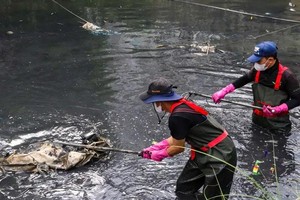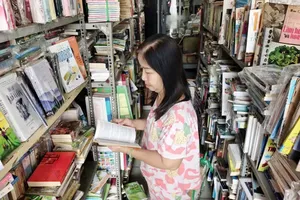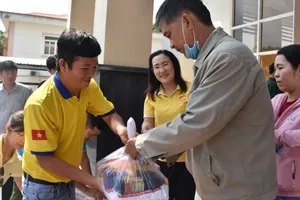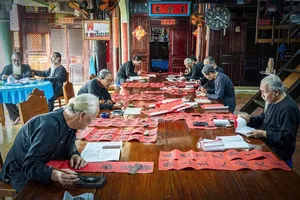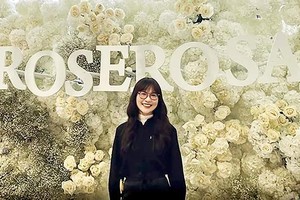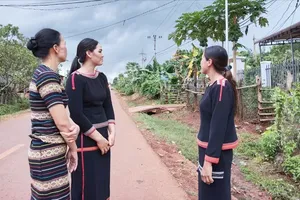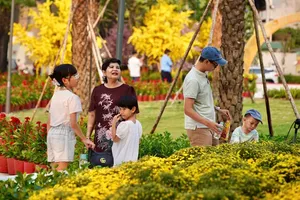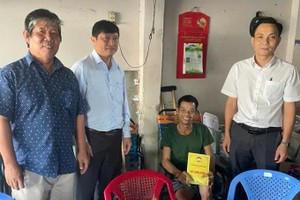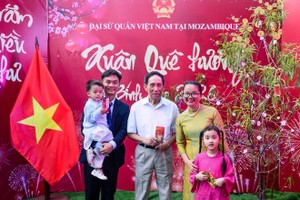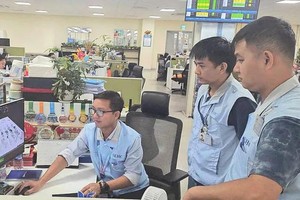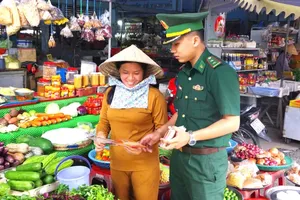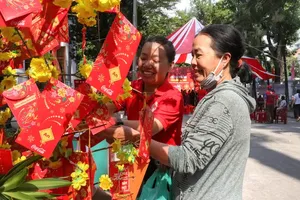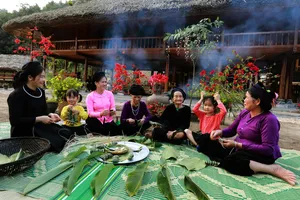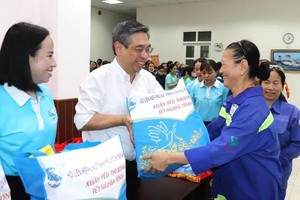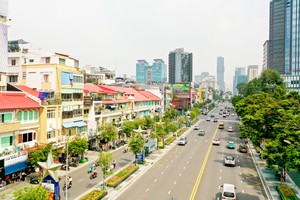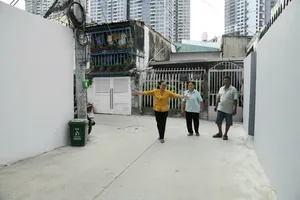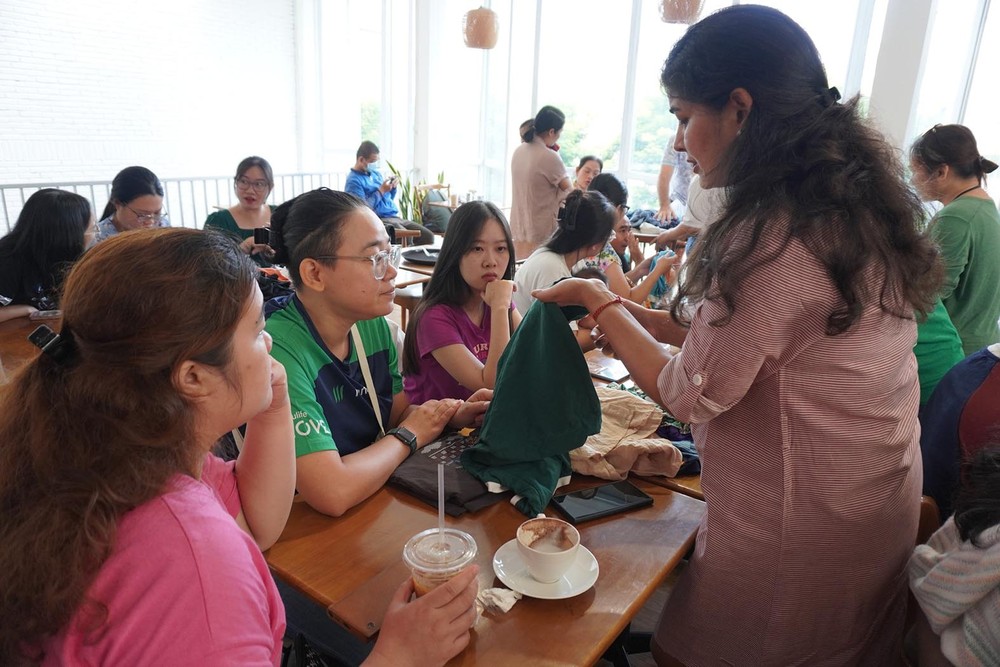
Fashion designs rapidly change in each season and the speed at which garments are produced also means that consumers throw away more old clothes. How to treat discarded clothes is a big question because fast fashion waste has an extremely detrimental impact on the environment.
RESY is an initiative of BTR-Global for waste collection and management solutions launched in Vietnam in September 2023. RESY creates additional revenue for the team of collaborators while encouraging consumers to get used to classifying waste at their houses - one of the important factors for the most effective waste treatment process.
RESY's method is different from other collection models because it encourages consumers to sort clothes by material and remove buttons, zippers, and accessories from the fabric. If customers do correctly, they will sell their old clothes for greater than the actual value of the material.
Sorting used clothes, accessories and glass jars to send to RESY's collection venues several times, 25-year-old graphics worker Tran Huyen Thanh in Ho Chi Minh City’s Go Vap District said that trash classification will make it easier for RESY to handle. Moreover, while sorting wastes, a person can realize which ones are sustainable items, which ones are disposable items, so he/she can increase or decrease purchase of items in daily activities to reduce the amount of single-use plastic waste in the environment.
After receiving customers’ unwanted clothes, RESY staff will classify them again for different recycling purposes. For instance, some clothes in good condition for donation purposes (reuse) while others will be used as raw material for repurposing/upcycling into products such as bags, and stuffed animals. Old polyester garments can be transformed into polyester fibers (recycled). Additionally, unworn clothes will be recycled by the company to the cradle stage (fibrous mixture) and used as mattress filling material.
Managing Director of the RESY project Do Minh Trang said that most old clothes get sent to landfills, and just like plastic, it takes a lot of time for them to decompose, causing harmful effects of pollution on soil and water sources. The project’s goal is to learn and build a model for managing fashion waste originating from consumption.
Unlike other collection organizations, RESY encourages consumers to join hands by sorting old clothes, disassembling accessories and sending them to collection points. Additionally, RESY also organized workshops for consumers, and students of some universities on material classification, consumer knowledge, and understanding more about the reuse and recycling capabilities of clothes.
Nevertheless, recycling and waste collection models or projects in Vietnam in fact face many difficulties in operating to maintain sustainability.
BTR Global Vietnam which is the managing unit of RESY has the concept of sustainable development which is a balance between economic benefits and impacts on the environment, people and society while seeking profits in harmony with the common interests of society and the environment. When starting her collection and recycling project, Ms. Trang and the RESY team want to orient towards a better future for the next generation.
She continued that the Gen Z generation is environmentally conscious, which is an advantage for implementing a green lifestyle.
The sustainable green living probably starts from community-oriented work for community benefit and a healthy living environment.
